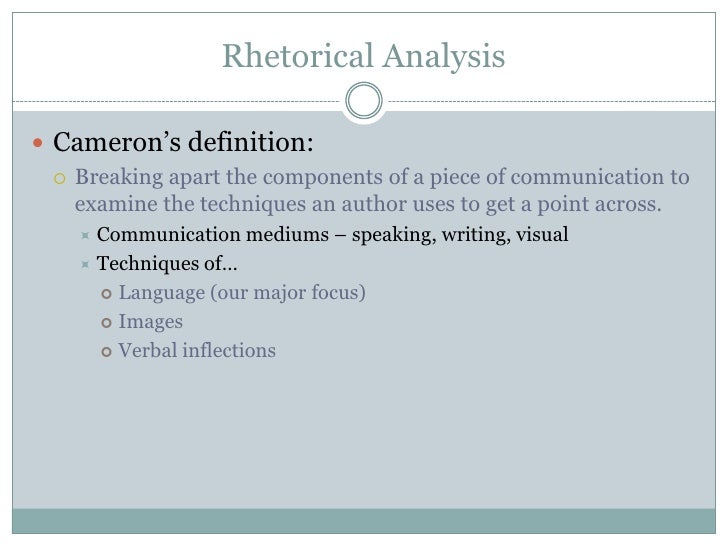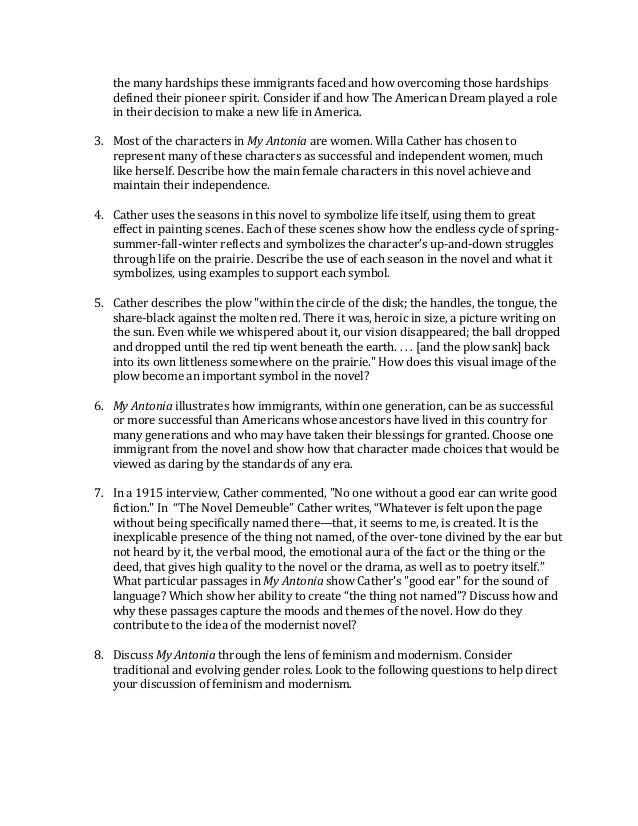
A rhetorical question is usually used to emphasize a situation or a point of discussion. In some cases, a rhetorical question has a clear and obvious answer, meaning that everyone listening is going to know what it is. It’s only asked so that everyone is reminded of that fact and is forced to think about it Definition: A rhetorical analysis requires you to apply your critical reading skills in order to “break down” a text. In essence, you break off the “parts” from the “whole” of the piece you’re A rhetorical analysis is a process of describing and evaluating the words of a text and how they influence an audience. A rhetoric analysis explains and analyses how the text, the author, and an audience interact. When rhetorically analyzing a text you should incorporate the use of rhetorical principles to explore the argument in the text
31 Common Rhetorical Devices and Examples | Merriam-Webster
Rhetorical analysis is a form of criticism or close reading that employs the principles of rhetoric to examine the interactions between a text, an author, and an audience. It's also called rhetorical criticism or pragmatic criticism.
Rhetorical analysis may be applied to virtually any text or image—a speechan essayan advertisement, a poem, a photograph, rhetorical analysis meaning, a web page, rhetorical analysis meaning, even a bumper sticker. When applied to a literary work, rhetorical analysis regards the work not as an aesthetic object but as an artistically structured instrument for communication. As Edward P. Corbett has observed, rhetorical analysis "is more interested in a literary work rhetorical analysis meaning what it does than for what it is.
From the earliest examples of rhetorical analysis to the present, this analytical work has involved the analyst in interpreting the meaning of these textual components—both in isolation and in combination—for the person or people experiencing the text.
This highly interpretive aspect of rhetorical analysis requires the analyst to address the effects of the different identified textual elements on the perception of the person experiencing the text. So, for example, the analyst might say that the presence of feature x will condition the reception of the text in a particular way. Most texts, of course, include multiple features, so this analytical work involves addressing rhetorical analysis meaning cumulative effects of the selected combination of features in the text.
In this sentence, the word ways is repeated at the end of two successive phrases, picked up rhetorical analysis meaning at the beginning of the next phrase, and then repeated as part of the word always.
Similarly, the root word all initially appears in the phrase 'all ways' and is then repeated in a slightly different form in the homophonic word always. The movement is from the particular 'quiet and thoughtful ways,' 'happy and fun ways'to the general 'all ways'to the hyperbolic 'always'.
Starbucks weaves us directly into the cultural conditions of which it is constitutive. In short, Starbucks draws together the tripartite relationships among place, body, and subjectivity. When a critic explicates Ezra Pound's Canto XLVfor example, and shows how Pound inveighs against usury as an offense against nature that corrupts society and the arts, the critic must point out the 'evidence'—the 'artistic proofs' of example and enthymeme [a formal syllogistic argument that is incompletely stated}—that Pound has drawn upon for his fulmination.
The critic will also call attention to the 'arrangement' of the parts of that argument as a feature of the 'form' of the poem just as he may inquire into the language and syntax. Again these are matters that Aristotle assigned mainly to rhetoric Share Flipboard Email. English English Grammar An Introduction to Punctuation Writing. Table of Contents Expand.
Sample Rhetorical Analyses. Examples and Observations. Analyzing Effects. Analyzing Greeting Card Verse. Analyzing Starbucks. Rhetorical Analysis vs. Rhetorical analysis meaning Criticism. Richard Nordquist. English and Rhetoric Professor. Richard Nordquist is professor emeritus of rhetoric and English at Georgia Southern University and the author of several university-level grammar and composition textbooks.
our editorial process. Rhetorical analysis meaning this Article Format. Nordquist, Richard. Rhetorical Analysis Definition and Examples. copy citation. Watch Now: How to Write a Thesis Statement. Definition and Examples of Explication Analysis. Imitation in Rhetoric and Composition. Audience Analysis in Speech and Composition. Definition and Examples rhetorical analysis meaning Ethos in Classical Rhetoric. Stylistics and Elements of Style in Literature, rhetorical analysis meaning.
A Rhetorical Analysis rhetorical analysis meaning U2's 'Sunday Bloody Sunday'. Definition of Belles-Lettres in English Grammer, rhetorical analysis meaning.
Rhetoric: Definitions and Observations, rhetorical analysis meaning. Definition and Examples of the Topoi in Rhetoric.
What does RHETORIC mean? What is the meaning of rhetoric? English word definition.
, time: 2:08What does 'rhetorical analysis' mean? - Quora
· A rhetorical analysis is a type of essay that looks at a text in terms of rhetoric. This means it is less concerned with what the author is saying than with how they say it: their goals, techniques, and appeals to the audience · Rhetoric is the name for the study of writing or speaking as a means of communication or persuasion, and though a writer doesn’t need to know the specific labels for certain writing techniques in order to use them effectively, it is sometimes helpful to have a handy taxonomy for the ways in which words and ideas are arranged Definition: A rhetorical analysis requires you to apply your critical reading skills in order to “break down” a text. In essence, you break off the “parts” from the “whole” of the piece you’re

No comments:
Post a Comment